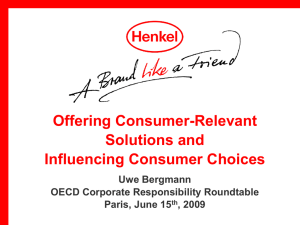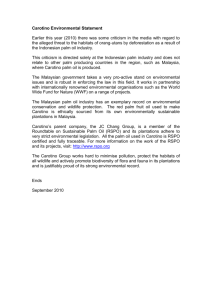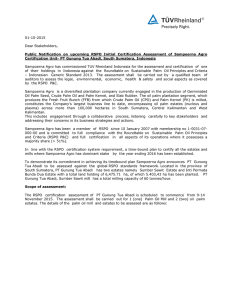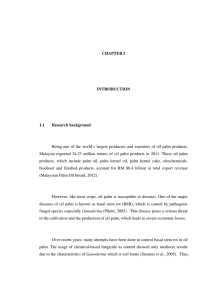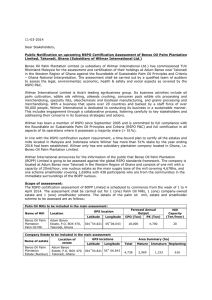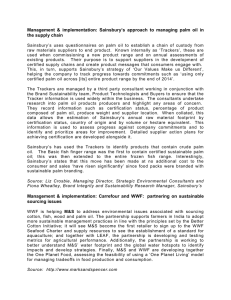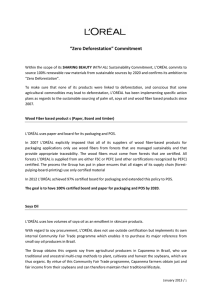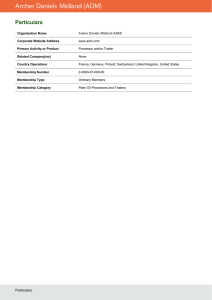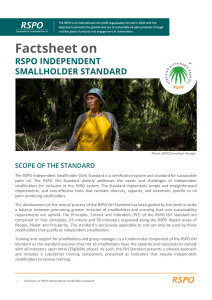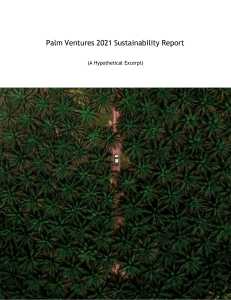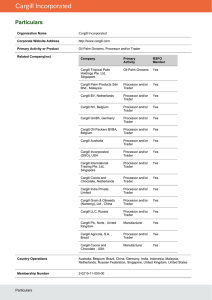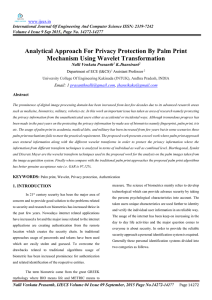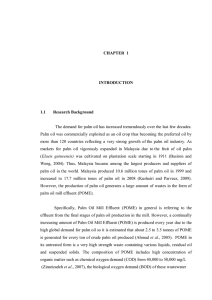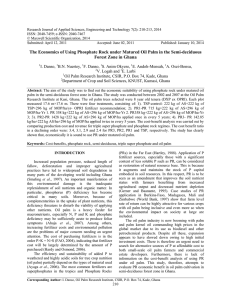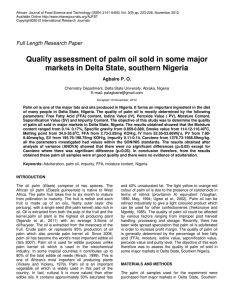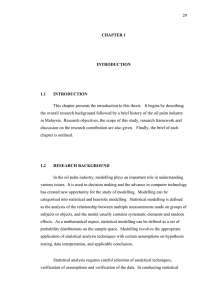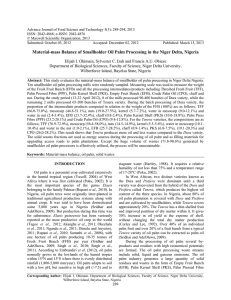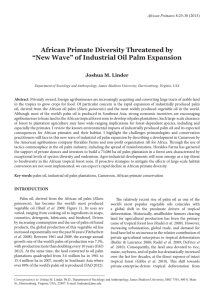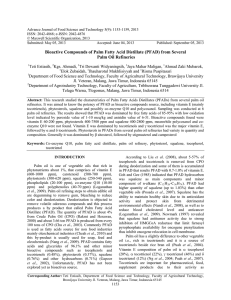Workshop on International Law, Natural Resources and Sustainable Development
advertisement
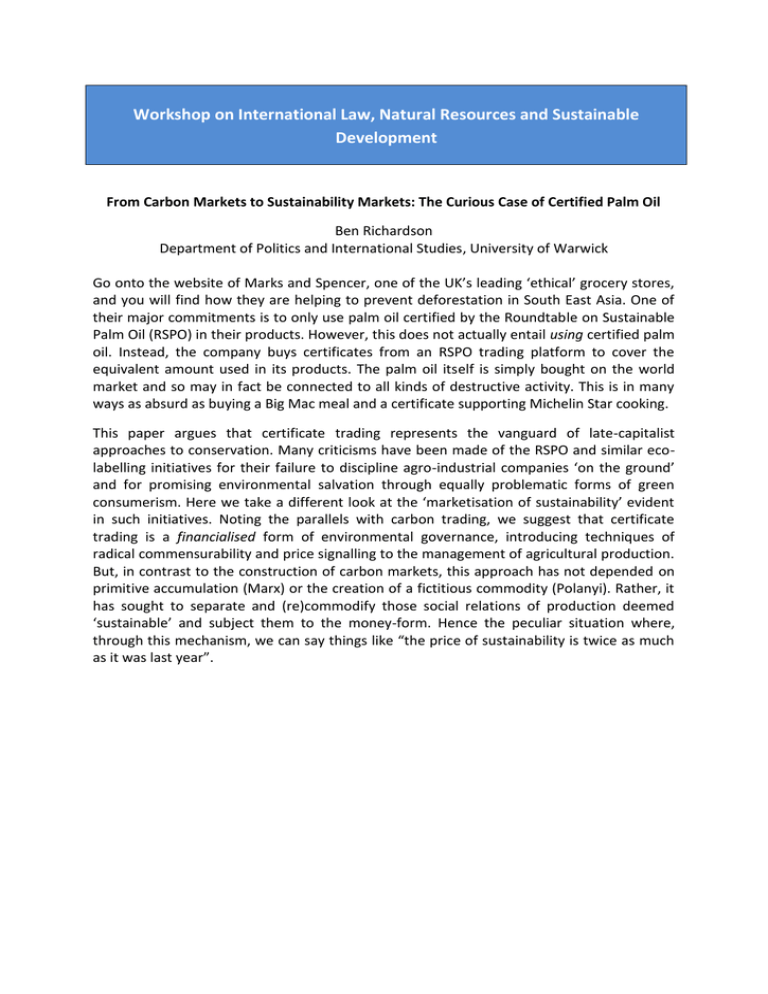
Workshop on International Law, Natural Resources and Sustainable Development From Carbon Markets to Sustainability Markets: The Curious Case of Certified Palm Oil Ben Richardson Department of Politics and International Studies, University of Warwick Go onto the website of Marks and Spencer, one of the UK’s leading ‘ethical’ grocery stores, and you will find how they are helping to prevent deforestation in South East Asia. One of their major commitments is to only use palm oil certified by the Roundtable on Sustainable Palm Oil (RSPO) in their products. However, this does not actually entail using certified palm oil. Instead, the company buys certificates from an RSPO trading platform to cover the equivalent amount used in its products. The palm oil itself is simply bought on the world market and so may in fact be connected to all kinds of destructive activity. This is in many ways as absurd as buying a Big Mac meal and a certificate supporting Michelin Star cooking. This paper argues that certificate trading represents the vanguard of late-capitalist approaches to conservation. Many criticisms have been made of the RSPO and similar ecolabelling initiatives for their failure to discipline agro-industrial companies ‘on the ground’ and for promising environmental salvation through equally problematic forms of green consumerism. Here we take a different look at the ‘marketisation of sustainability’ evident in such initiatives. Noting the parallels with carbon trading, we suggest that certificate trading is a financialised form of environmental governance, introducing techniques of radical commensurability and price signalling to the management of agricultural production. But, in contrast to the construction of carbon markets, this approach has not depended on primitive accumulation (Marx) or the creation of a fictitious commodity (Polanyi). Rather, it has sought to separate and (re)commodify those social relations of production deemed ‘sustainable’ and subject them to the money-form. Hence the peculiar situation where, through this mechanism, we can say things like “the price of sustainability is twice as much as it was last year”.

